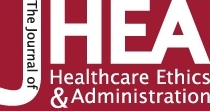Back Issue: Vol.4 No.2 (Fall/Winter 2018)
ISSN 2474-2309
Research Ethics
- Peter Clark, The Institute of Clinical Bioethics, Marvin Lee, Olivia Nguyen
Address correspondence to: Peter A. Clark, SJ, Ph.D., The Institute of Clinical Bioethics, Saint Joseph’s University, 5600 City Avenue, Philadelphia, PA 19131, U.S.A. Email: peter.clark@sju.edu
Pages: 1-16
The 2017 story of Charlie Gard is revisited. Upon the British High Court’s ruling in favor of the physicians that the infant should be allowed to die without the experimental treatment, the view of the public as well as the opinions of bioethicists and Catholic bishops are divided, interestingly along with a cultural line. American bioethicists and Catholic bishops tend to believe that the parents should have the final say while British/European bioethicists and Catholic bishops in general side with the court’s decision. The paper explores the place of culture in bioethical reasoning between the UK/Europe and the US while claiming that cultural differences are more important than geopolitical or religious differences to understand the bioethical positions of a group. In addition, the authors introduce a decision-making program for handicapped neonates which is developed by the American Jesuit Bioethicist, Richard McCormick, and modified further by the contemporary American Jesuit Bioethicist, Peter A. Clark, in an attempt to see if the program’s normatizing categories can contribute to the culture-laden ethical discussions on Charlie’s case. However, it is admitted that the McCormick-Clark device is borne out of the American and Catholic theological context.
- Marvin Lee, The Institute of Clinical Bioethics, Nicholas Picciano, Steve Weyler, Karen Ha, Sharon Jeong
Address correspondence to: Marvin J. H. Lee, Ph.D., The Institute of Clinical Bioethics, Saint Joseph’s University, 5600 City Ave., Philadelphia,
PA 19131, U.S.A. Email: marvin.lee@sju.edu
Pages: 17-25
The number of police departments carrying Narcan keeps increasing at a fast pace throughout the U.S., as it is considered an effective measure to fight the opioid epidemic. However, there have been strong oppositions to the idea of the police Narcan use. Still, in 2018, the nation is debating about it. Though not clearly visible to the public, there are important ethical arguments against the police Narcan use which necessarily involve understanding of the ethical roles and responsibilities of police as the law enforcement agency and apprehension of the moral status of a non-therapeutic opioid use. The authors of the paper investigate, primarily, the existing ethical controversies surrounding the police Narcan use while touching upon the issue of the decriminalizing drug policy in the U.S. The authors conclude that the police can carry and administer Narcan without self-contradiction and that the policymakers’ investigation on the drug decriminalization policy should begin with the understanding of the “common morality” of the American public, the ethical view shared and practiced by the greatest number of people.
Spirituality and Ethics
- Kadin Williams
Address correspondence to: Kadin J. G. Williams, M.Div., MA., Philosophy Department, Temple University, 1801 N Broad St, Philadelphia, PA 19122, U.S.A. Email: kadin.joshua.gard.williams@temple.edu
Pages: 26-31
Although contemporary bioethics is largely seen as the domain of analytic philosophical and theological discourse, the nature of the relationship between healthcare and spirituality should propel bioethicists towards a more constructive dialog between the resources of analytic bioethics and continental phenomenology. Phenomenology’s unique approach to the question of human consciousness, as a matter of embodiment, can help supplement the insights that the analytic tradition has unraveled in its attempts to help practitioners find better means of caring for patients as emotional and spiritual beings. To this end, phenomenology is particularly useful in helping one think about the patient’s experience of time, space, social interactions, and the experience of illness on an affective level. If medical practitioners and chaplains hope to be more effective in treating issues related to a patient’s spirituality, then it is essential to develop a phenomenological engagement with theological bioethics.
Ethics Report
- William Osei-Bonsu, Aviel Stein, Michael Boswell
Address correspondence to: William Ose-Bonsu, Electrical and Computer Engineering Department, Drexel University, 3175 Chestnut St, Philadelphia, PA 19104, U.S.A. Email: wo23@drexel.edu
Pages: 32-38
Book Review
- Gina Christian
Address correspondence to: Gina Christian, CatholicPhilly.com (Archdiocese of Philadelphia), Philadelphia, Pennsylvania, U.S.A. Email:
gchristian@archphila.org
Pages: 39-41
Student Paper
- Madeline Paradkar, Erik Hanycz
Address correspondence to: Madeline Paradkar and Erik Hanycz, Biology Department and Religion Department, La Salle University, 1900 W Olney Ave, Philadelphia, PA 19141, U.S.A. Email: paradkarm1@student.lasalle.edu, hanycze1@student.lasalle.edu
Pages: 42-45
This paper analyzes the policy decision to bring Safe Injection Facilities (SIFs) to Philadelphia by using the theological method of balancing, the Doctrine of Double Effect (DDE). The DDE’s four conditions are elaborated to examine if the policy meets the four conditions. The authors find that the policy satisfies the last three conditions and that the first condition is not relevant to the issue. Accordingly, we conclude that the SIFs in Philadelphia is theologically permissible.
- Augustus Most
Address correspondence to: August Most, The Department of Astrophysics and Planetary Science, Villanova University, 800 Lancaster Ave, Villanova, PA 19085, U.S.A Email: amost@villanova.edu
Pages: 46-48
In this paper, the author visits the historically important philosophical argument, Elizabeth Anderson’s “Is Women’s Labor a Commodity?” and the critical essays by her critics, Richard Arneson and Alan Wertheimer. The author evaluates their arguments.
